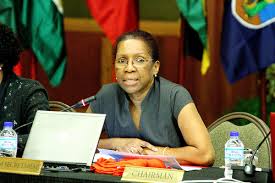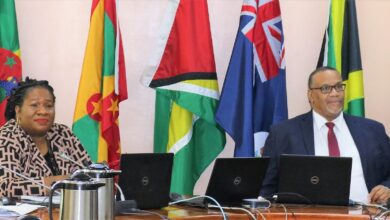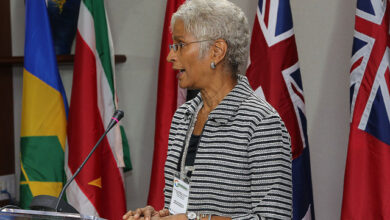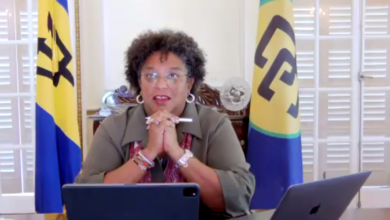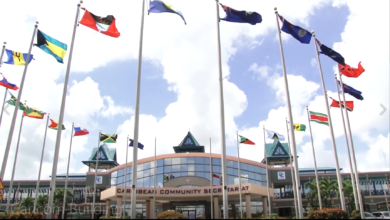On behalf of the Secretary-General of Caribbean Community, it gives me great pleasure to welcome you to the Forty-First Special Meeting of the Council for Trade and Economic Development on Energy being held here in Trinidad and Tobago. The Secretary General sincerely regrets that he could not be here at this so important COTED Energy Meeting.
Ladies and Gentlemen,
Energy is fundamental to everything we do. It is fundamental to our economic survival and prosperity. It is not surprising therefore, that from time to time and in some ways, energy emerges as a challenging issue in CARICOM, a point reflected in the Region’s long journey in the development of a CARICOM Energy Policy. The finalization and approval of the CARICOM Energy Policy is a key item on the Agenda for this Special Meeting of the COTED on Energy. It is past time for final approval of the Regional Energy Policy and how more fitting could it be than for that to happen, here at this Meeting in Trinidad and Tobago, the Member State which has lead responsibility for energy in CARICOM’s Quasi Cabinet.
At the same time, we are not oblivious to the fact that there may remain lingering issues in relation to trade in energy which are still inconclusive. However, based on the mandate from Energy Ministers, we can go forward with the Policy at this time, even while seeking to address those outstanding issues over time.
Notwithstanding that some CARICOM Member States are producers of petroleum and petroleum products, the primary energy challenge for the Region remains the over-dependence on imported petroleum and petroleum products. The trend over the last three years indicates that the total cost of the annual fuel import bill for the Region is around US$8-9 Billion with the tendency to be rising. This continues to have a deleterious effect on the economic and social development of the net energy importing countries of CARICOM.
It is also the reason why the Region continues to search for ways to mitigate the impact of the high price of oil, especially with respect to food and other commodities. To this end, over the last two years, through the COTED, Member States have sought suspensions of the Common External Tariff (CET) on various items to alleviate the burden on the citizens of the Community. Similarly, one expectation of this Meeting of the COTED on Energy is that COTED would also consider any energy sector short term action which can be taken.
Ladies and Gentlemen,
Achieving energy security through the diversification of energy supplies (based on the development of indigenous resources), is a major focus of the Revised Draft Regional Energy Policy. In this regard, and especially for, but not only for, the majority of our countries which do not have proven hydrocarbon resources, it is only rational that they also aggressively pursue the harnessing of their abundant renewable energy resources whether it is in the form of solar energy, wind power, hydropower, biomass, geothermal energy, or marine energy.
Renewable energy and energy efficiency are no longer peripheral issues. These are now the business of every CARICOM Member State. As has been observed by Prime Minister of St Kitts and Nevis at the Third Caribbean Sustainable Energy Forum, “there is no turning back”. In this regard, I wish to congratulate the Government of Trinidad and Tobago which has demonstrated much leadership, in that, despite their petroleum and gas resources and lower energy costs, the government has begun implementing a range of incentives to encourage renewable energy development and improvement in energy efficiency. Indeed for the first time at the level of the Community, targets for the contribution of renewable energy to the regional energy matrix are being put forward for the consideration and approval at this meeting of the COTED.
But beyond the traditional trade in energy, the energy sector remains an area for significant increased collaboration and cooperation to the benefit of all Member States. There are opportunities for cooperation around energy services in the oil and gas sector, capacity building in some areas especially in clean energy and renewable energy, and also for the economic development towards the establishment of enterprises as endorsed by the Conference of Heads of Government. As the Prime Minister of Dominica, so aptly said in October 2011 in his presentation in the David Thompson Lecture Series “advancement towards an improved energy situation for many CARICOM countries will depend on increased functional cooperation in the context of Regional Integration but it will also benefit the Regional Integration process”. This will become more important as the Region contemplates the challenges associated with new modes of trade in energy such as inter-state natural gas pipelines and sub-marine electricity transmission lines.
And this brings me to the subject of Geothermal Development. The full development of geothermal energy is largely predicated on the establishment of interconnection between countries. The strides made in geothermal energy development in the Eastern Caribbean is potentially one of the most, if not potentially the most transformative economic development for the entire sub-region in terms of both the potential power-producing countries and the recipient countries.
On the matter of transformation, it is noted that this year is the 40th anniversary of CARICOM and the Community is seeking to refocus and to develop a strategic plan which will help to rationalize and reposition the CARICOM Secretariat and other CARICOM institutions. It is also noteworthy that this year marks the 40th anniversary of the first oil crisis in 1973. It is therefore a good time for CARICOM Member States to re-focus, rationalize and reposition their energy sectors toward greater sustainability.
I close on the same note on which I began: energy can be a difficult subject matter and is often the source of much debate in CARICOM, and with good reason. The challenge, however to COTED and to Member States, is to find ways to make energy work for our integration process and for the development of the Region as whole.
I Thank you.


